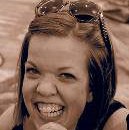- A
- A
- A

Politically Correct
Donald Trump has recently argued against being politically correct in a big way. In his own words, Trump stated, “The big problem this country has—is being politically correct. And I don’t frankly have time for total political correctness. And, to be honest with you, this country doesn’t have time either.”
Quite frankly, I’m a little surprised that marginalized communities across the United States have not been more vocal about this statement, as it affects all of us. Maybe it’s because we’re all used to Trump’s outrageous statements at this point, or maybe it’s because we all know that people that have never asked for language to be changed are, more than likely, the ones supporting Trump’s perspective. Personally, I know I’ve heard this argument tenfold when I’ve asked for certain language to be used regarding my disability. No matter how polite we are when we ask, those with power always play the victim of “political correctness.”
Unfortunately, not wanting to be so ‘politically correct’ seems to be a common defense of using disparaging language. Choosing to not use correct terminology towards a group of people is also choosing to participate in and benefit from the oppression of that minority group. Publicly stating that you do not have time to be “politically correct” is, in my opinion, equivalent to publicly admitting that your personal success has directly benefitted from another person’s oppression and you are just fine with that. For example, if a male colleague were to sexually harass a female colleague by making lewd comments about her body, this male colleague is directly benefitting from the belief that this woman is mostly valued as a sexual object because, as a male, he can keep his status within the organization, or possibly be promoted, if it is believed that she has nothing else to offer. By telling her that he doesn’t have time for “political correctness,” he maintains his unearned, superior status as someone who is measured by his accomplishments and not treated as a sexual object.
In other words, people that refuse to take political correctness seriously are refusing to identify their own privilege. According to Merriam-Webster dictionary, ‘privilege’ is a right or benefit that is given to some people and not to others or the advantage that wealthy and powerful people have over other people in a society. We all have some sort of privilege, as our society was constructed on giving some people benefits while not giving those same benefits to others. Whether it is our race, gender, income, sexual preference, disability, ethnicity, or religion, we are all privileged in some ways, but disadvantaged in others. Yet, it is often times very hard to admit our own privilege because it requires us to admit we have been part of the oppression. It is difficult for all of us to recognize that we are part of the problem of social inequality. However, it is extremely important for all of us to do the hard work of recognizing our own privilege, so that we can understand how our words, actions and policies impact other people. It is only by recognizing our own privilege that we will ever be able to change the system.
Choosing to be ‘politically correct’ is a social responsibility that, I believe, we all carry. By choosing to be politically correct, we are choosing to aim for equality among all of us and not just some of us; we are choosing to understand that language changes and we need to hear directly from the people it impacts to know if it has become damaging; being politically correct is also choosing not be racist, xenophobic, ableist or sexist. From my perspective, if there is anything this country should have time for, it should be political correctness.
Leah Smith is a writer, communications professional and disability advocate. Leah holds a Bachelor’s in Public Relations and a Masters in Public Administration and Policy. She has focused her career on creating access and equality for all. Leah currently resides in Philadelphia with her partner and two dogs.